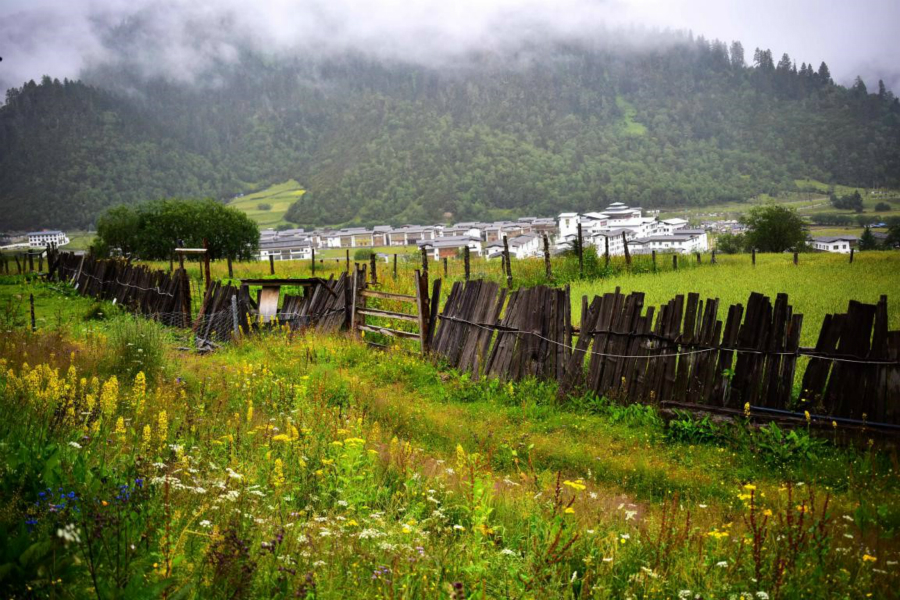Tibet's Nyingchi dives deep in eco-tourism, embraces prosperous development

Photo shows Lulang Township, Nyingchi, southwest China's Tibet Autonomous Region. [People's Daily Online/Zhu Zhenqiang]
Dekyi Wangmo is a 35-year-old woman born in Tonpa village of Mainling County, Nyingchi, southwest China's Tibet Autonomous Region. Having been yearning for urban life since being a child, she worked in cities for years after she entered adulthood.
However, her hometown became a place that she never wants to leave again when she returned there a couple of years ago.
What attracts her is the prosperous development there. Tonpa village, sitting by the clear and green water rolling in the Yarlung Tsangpo River, is a perfect observation point for the snow-covered Mount Namjagbarwa, the highest mountain in Nyingchi. Thanks to the village's altitude, which is relatively low in Nyingchi, as well as its rich and splendid natural resources, flocks of tourists are swarming in it for sightseeing.
Under the support of the village committee and the Party committee of the village, Dekyi Wangmo established a tourism cooperative in 2016, and her fellow villagers joined it as shareholders. In July, 2019, a B&B hotel of the cooperative was completed and put into operation, bringing in a revenue of 1.86 million yuan ($286,158) in the same year. Though impacted by COVID-19, the net income of the B&B still hit 1.3 million yuan last year.
The story of Tonpa village isn't one-and-only in Nyingchi. Over the past 5 years, the city has worked vigorously to build itself into a demonstration city for the promotion of ecological progress, as well as a demonstration holistic tourism destination, receiving over 32 million visits and generating tourism revenue of more than 24 billion yuan. The lucid waters and lush mountains in Nyingchi have been turned into invaluable assets for its residents.
Lulang was once a forest farm in Nyingchi 's Bayi District. As lumbering was completely banned in Tibet since the end of the 20th century, Lulang accelerated the process of industrial transition, focusing more on ecological tourism. Under the pair assistance offered by south China's Guangdong Province, the Lulang International Tourism Town was opened in 2017.
The B&B of Tashi Phuntsog, a villager from Tashigang village, Lulang Township is a hot destination among tourists. "Lulang has become a well-known tourist site, attracting huge numbers of tourists," said Tashi Phuntsog. There are also many hotels of higher levels in the township which can satisfy tourists at higher consumption levels, he added.
Myidoi village of Pome County spent 1.5 million yuan last year on restoring a batch of traditional architectures. Last June, a tourism company was established in the village, funded by 163 residents from 53 households. The village also collected 250 horses from villagers and designated an area where tourists can enjoy the sceneries on the back of the horses.
Horse riding can protect local environment and offer unique experience for tourists, said villager Tashi Tsewang, adding that the industry has increased income for all the villagers.
"Sound ecology leads to prosperity," remarked Liu Guangming, executive vice mayor of Nyingchi, and also head of the ninth team of a pairing-up aid program dispatched by Guangdong to Tibet. Nyingchi will rely on its eco-tourism advantages and advance the construction of tourism facilities such as smart hotels and B&Bs, so as to promote industrial upgrade of the tourism sector and constantly improve its development, he said.
























